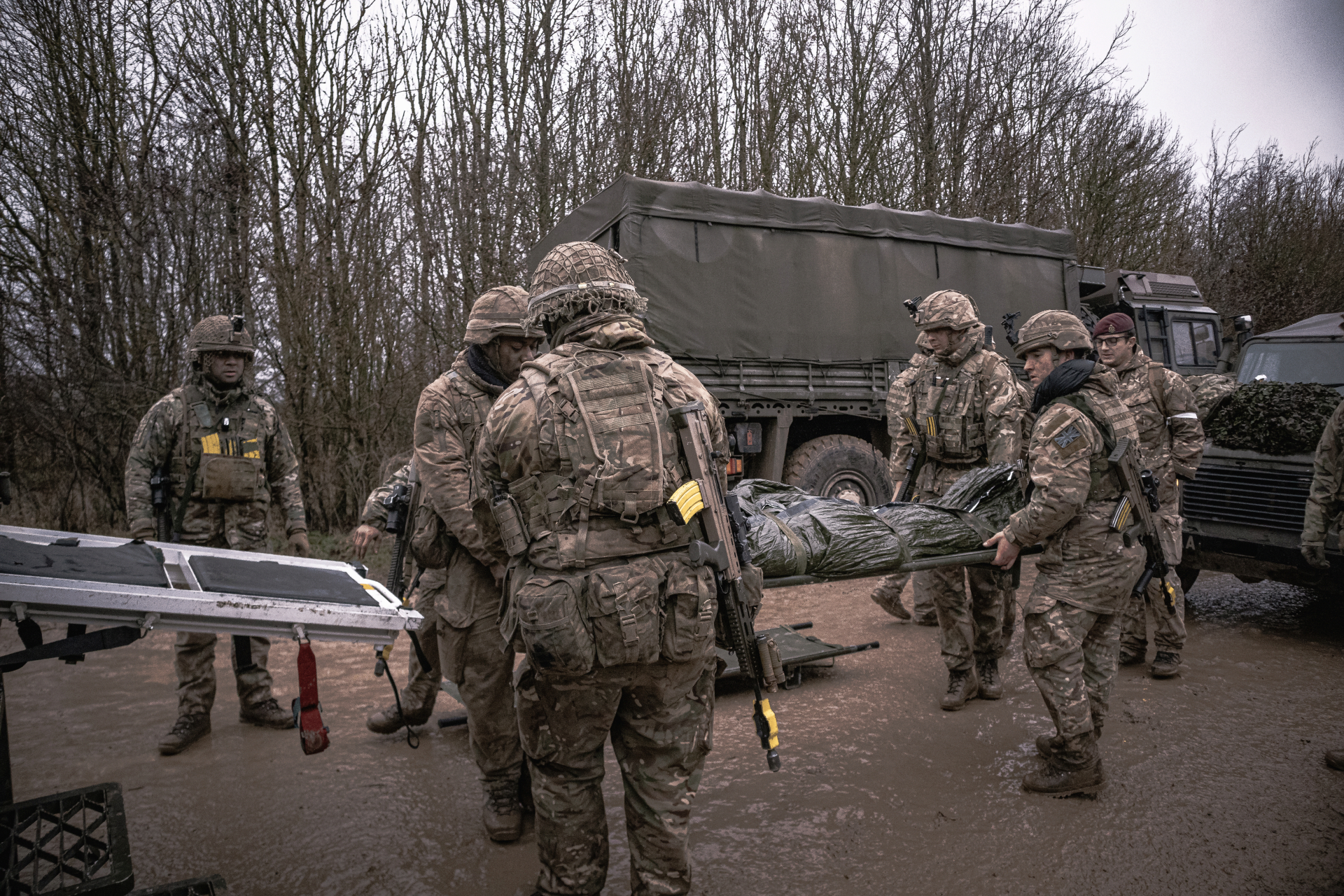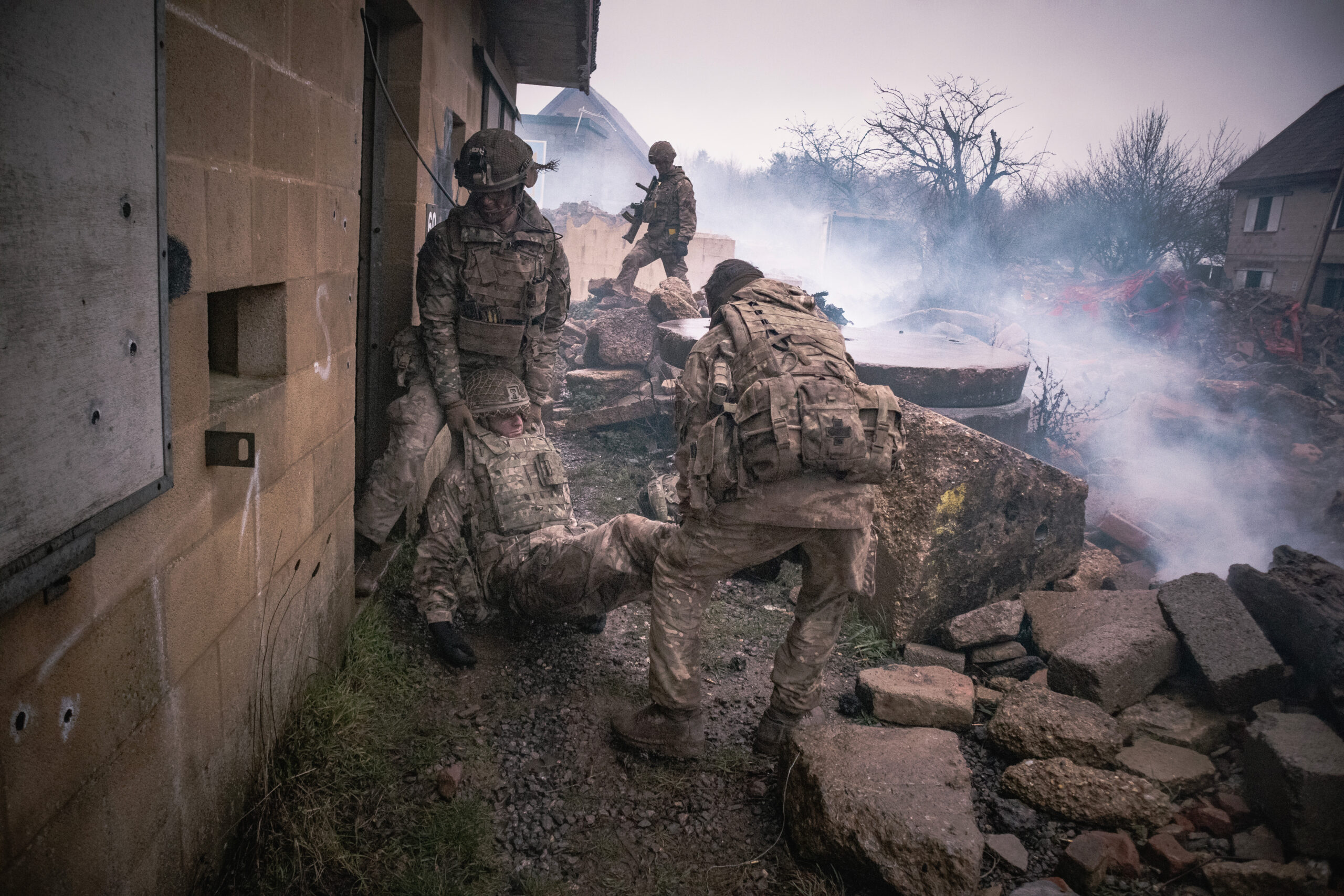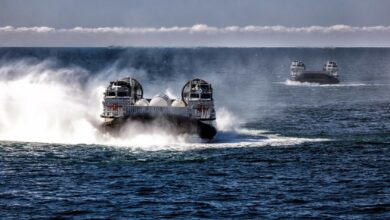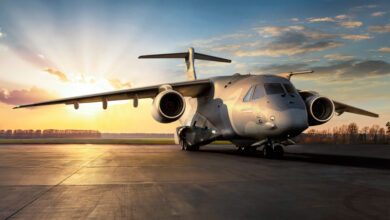The British Army has trained airborne medical personnel for international deployment at Salisbury Plain in Southern England.
The exercise involved soldiers from the agency’s 23 Medical Squadron, 16 Medical Regiment, which supports advanced resuscitative to damage control surgery procedures.
It incorporated a simulated short-notice operation to assist an ally facing an invasion from a neighboring region. The team used a Royal Air Force A400M Atlas transport aircraft to arrive near the location.
Upon landing, the medics and their equipment were carried by helicopter to set up temporary treatment facilities across the training site.
The unit then facilitated treatment addressing general health care, point of wound damage, and more complex conditions requiring life-saving control surgery such as blast injuries.
The team was evaluated on its communication and supply management while keeping the hub mobile and camouflaged from enemies.
International Response Preparation
The British Army said that the event validated the 23 Medical Squadron’s operability for “very high readiness” missions as part of the 16 Air Assault Brigade, the agency’s designated global response force unit.
“The challenge of high readiness operations requires robustness and agility, both mental and physical,” 23 Medical Squadron Commanding Officer Maj. Sean Mason stated.
“Our role is to get there first, often without fully knowing the situation we’re facing and what we’ll have to do.”
“What we offer is a world-leading military medical capability through the skills and experience of our soldiers; the range of treatment we can deliver; our readiness to deploy around the world; and our ability to manoeuvre on the battlefield.”

‘Good Reflection’
Combat Medical Technician Cpl. Anthony Siddall, who was tasked with managing the medical reception station, shared how their team was refreshed during the Salisbury training.
“For me the reward of being a medic is being there to help someone when they really need it,” he said. “Our role is to be ready to go anywhere in the world and do that, whether it’s a warfighting or humanitarian situation.
“This training has been pretty fast-paced – we flew in and had patients to treat as soon as we were on the ground – and that’s a good reflection of what we’d have to do on an operation.”
16 Medical Regiment
The 16 Medical Regiment, the squadron’s parent branch, recently deployed for evacuations in Kabul in 2021, and earthquake response and relief efforts for Turkey and Sudan in 2023.
The unit currently employs combat medical technicians, dentists, biomedical scientists, and orthopedic surgeons equipped with parachuting, helicopter, and air landing skills.












